
Shona Bettany
Professor of Marketing, School of Business, Education and Law, University of Huddersfield
I am a Professor of Marketing with 20+ years experience of marketing teaching, research and enterprise. I have published and presented internationally over that time on consumer research and consumer trends but my research skills are transferable across a range of contexts and questions that require an in-depth qualitative answer. I am a consumer ethnographer, focussing on consumer culture in all its guises but more specifically on material-semiotic approaches to consumption. These approaches have illuminated such topics as gender and sexuality, consumer resilience, contemporary family consumption and animal-human relations. I have completed funded research projects for ESRC, Leverhulme, and Innovate UK. My publications can be read in Sociology, European Journal of Marketing, Gender, Work and Organisation, Marketing Letters, Journal of Business Research, Marketing Theory, Journal of Business & Industrial Marketing, Consumption, Markets and Culture, Advances in Consumer Research, and Journal of Marketing Management.
Less ![]()

Shona Halson
Associate professor, school of Behavioural and Health Sciences, Australian Catholic University
Less ![]()

Shona Murray
PhD candidate, The University of Western Australia
Shona Murray is a marine ecologist and PhD candidate at the University of Western Australia. Her research focuses on investigating the spatial ecology of sharks with the ultimate aim of informing more effective management practices.
Less ![]()
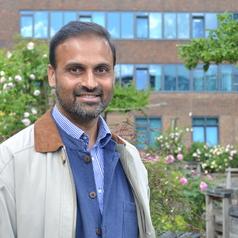
Shonil Bhagwat
Professor of Environment and Development, The Open University
Shonil Bhagwat is an environmental geographer with broad research interests at the cross-section between natural and social sciences. Most of his research investigates ‘social-ecological systems’ at various spatial scales, from landscapes to continents; and at various temporal scales, from seasonal to millennial.
Less ![]()
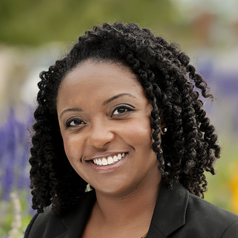
Shontavia Johnson
Shontavia Johnson joined the Drake University Law School faculty in 2010 and was named the Kern Family Chair in Intellectual Property Law and Director of the Intellectual Property Law Center in 2016. She teaches Introduction to Intellectual Property, Trademark and Unfair Competition Law, Internet Law, Entertainment Law, and Property Law. Named one of the Top 40 Young Lawyers in the US by the American Bar Association, Shontavia was recently placed on the prestigious Fulbright Specialist roster and named a 2016 A. Leon Higginbotham Fellow by the American Arbitration Association.
Shontavia’s research focuses on intellectual property law, entrepreneurship, and innovation, and includes such topics as the protectability and reach of unregistered trademarks used on the Internet, the impact of the America Invents Act on startups and entrepreneurs, the role of the Thirteenth Amendment when permanent tattoos embody commercial trademarks, and viral meme trademarks. Her publications have appeared in the Berkeley Technology Law Review, the Michigan Telecommunications and Technology Law Review, the John Marshall Review of Intellectual Property Law, and the Arkansas Law Review. Shontavia has taught intellectual property law to students in the U.S. and abroad and served as a consultant to both startups and large corporations.
In 2014, Shontavia’s article, Trademark Territoriality in Cyberspace: An Internet Framework for Common Law Trademarks, was awarded the International Trademark Association Ladas Memorial Award, a competition that identifies the best article in the world on a trademark law topic. That same year, her article, Memetic Theory, Trademarks & the Viral Meme Mark, won third place in the competition. Shontavia has received the Iowa Organization of Women Attorneys Gertrude Rush Award, the South Carolina Governor’s School for Science and Mathematics Outstanding Alumnus Award, and the Jackie Robinson Foundation 42 Under 40 Alumni Award. In 2013, Shontavia was also named one of 40 Lawyers Under 40 by the National Bar Association and IMPACT.
Shontavia is also the founder and managing attorney of Jackson Johnson LLC, a boutique law firm serving entrepreneurs and entertainers. She frequently counsels clients in all areas of intellectual property law and consults with clients on entrepreneurial growth and development. She is registered to practice before the United States Patent and Trademark Office and a licensed mediator and arbitrator.
Shontavia received a B.S. in Biosystems Engineering from Clemson University, where she was a Palmetto Fellows Scholar, Coca-Cola Clemson Scholar, and a Jackie Robinson Foundation Scholar. She received her J.D. from the University of Arkansas School of Law, where she was associate editor of the Arkansas Law Review and a member of the National Criminal Procedure Moot Court team. While in law school, she was named a Vincent W. Foster Scholar, Jim G. Ferguson Scholar, and Harold Flowers Law Society Scholar, and she also served as a judicial extern to Judge Jimm Larry Hendren of the United States District Court for the Western District of Arkansas. Shontavia also studied international law and comparative constitutional law at the University of the Western Cape in Cape Town, South Africa.
Less ![]()
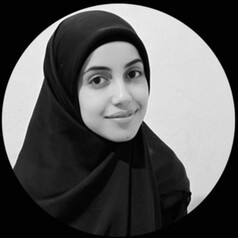
Shoohb Alassadi
Casual academic, University of Sydney
As a Bachelor of Pharmacy graduate, I explored various roles, including working as a Public Health Officer. Alongside my pharmacy background, I gained valuable insights into health systems and policy. Presently, I'm a postgraduate research student at the University of Sydney, while also undertaking roles as a Casual Academic; lab demonstrator, and tutor for the Pharmaceutical Science units of study.
Less ![]()

Shoumita Dasgupta
Professor of Medicine, Assistant Dean of Diversity & Inclusion, Boston University
Less ![]()
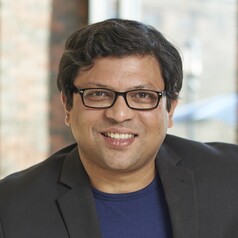
Shreyas Sen
Elmore Associate Professor of Electrical and Computer Engineering, Purdue University
Shreyas Sen is Elmore Chair Associate Professor of Electrical and Computer Engineering and Biomedical Engineering in Purdue University and the Founder and CTO of Ixana. His current research interests span mixed-signal circuits/systems and electromagnetics for the Internet of Bodies (IoB) and Hardware Security. He has authored/co-authored 3 book chapters, over 200 journal and conference paper and has 20 patents granted/pending. Dr. Sen serves as the Director of the Center for Internet of Bodies (C-IoB) at Purdue. His work has been covered by 250+ news releases worldwide, invited appearance on TEDx Indianapolis, multiple Television shows (CNBC, NASDAQ live) and podcasts. Dr. Sen is a recipient of the 2018 MIT TR35 India Award, 2022 Georgia Tech 40 Under 40 Award, NSF CAREER Award 2020, AFOSR Young Investigator Award 2016, NSF CISE CRII Award 2017, Intel Outstanding Researcher Award 2020, Google Faculty Research Award 2017, Purdue CoE Early Career Research Award 2021, Intel Labs Quality Award 2012 for industrywide impact on USB-C type, Intel Ph.D. Fellowship 2010, IEEE Microwave Fellowship 2008, GSRC Margarida Jacome Best Research Award 2007, and nine best paper awards including IEEE CICC 2019, 2021 and in IEEE HOST 2017-2020, for four consecutive years. Dr. Sen's work was chosen as one of the top-10 papers in the Hardware Security field (TopPicks 2019). He serves/has served as an Associate Editor for IEEE Solid States Circuits Letters (SSC-L), Nature Scientific Reports, Frontiers in Electronics, IEEE Design & Test, and TPC member of ISSCC, CICC, CCS, DAC, IMS, DATE, ISLPED, ICCAD, among others. Dr. Sen is a Senior Member of IEEE.
Less ![]()

Shu Zhang
Research Fellow in Nutritional Epidemiology, National Center for Geriatrics and Gerontology
For the past 9 years, I've worked as a nutritional epidemiologist specializing in aging-related research. A major focus of my work has been studying how nutrition can help prevent diseases like dementia and frailty that severely diminish quality of life for older adults. While I examine the nutritional benefits of specific foods, I'm also very interested in understanding the overall health impacts of entire dietary patterns.
Less ![]()
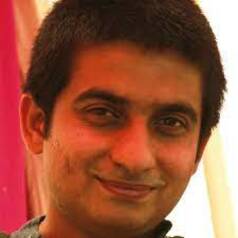
Shubham Mishra
PhD dandidate, faculty of geo-information science and earth observation, University of Twente
I am an urban planner trained at the International Institute of Geo-Information Science and Earth Observation (ITC, now part of University of Twente), the Netherlands and School of Planning and Architecture (SPA), Delhi. I also hold a Master’s degree in Geography from the University of Delhi. My interest lies in exploring landscapes – both built and natural – to link the present to the past. Most recently, it has translated into GIS mapping and designing of a tree database around the Humayun’s Tomb Complex, a UNESCO World Heritage Site for Aga Khan Trust for Culture (AKTC) in New Delhi. In the past, he has provided planning/GIS support to Deutsche Gesellschaft fur Internationale Zusammenarbeit (GIZ), the World Bank, and NGOs such Centre for Urban and Regional Excellence (CURE) and Forum for Organized Resource Conservation and Enhancement (FORCE) on issues centered on sustainable urban habitat. He plans to delve deeper into the use of digital technologies to visually depict the varied narratives that have and continue to make the urban.
Less ![]()
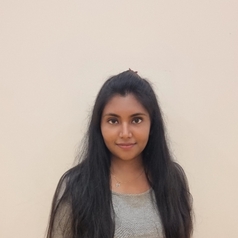
Shukla Poddar
Senior Research Fellow, School of Photovoltaics and Renewable Energy Engineering, UNSW Sydney
Shukla is a post-doctoral research fellow and will be working on an ARENA project of advanced O&M modelling. Her research focuses on understanding the implications of extreme weather events on energy generation, exploring synergy between wind and solar technology, modelling future PV module degradation rates.
Less ![]()
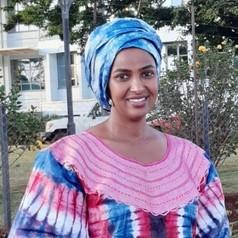
Shukri F. Mohamed
Associate Research Scientist, African Population and Health Research Center
Dr Shukri Mohamed is a public health specialist with experience in global health epidemiology. She has over 15 years’ experience in research, project planning and management, and has four years of clinical pharmacy practice experience. She also has strong skills in proposal writing, project management, project implementation, data quality assurance, data analysis and scientific writing. Dr Mohamed has authored over 65 peer reviewed publications. She attained PhD from the University of Warwick, a Masters in Public Health from the Johns Hopkins Bloomberg School of Public Health and a Doctor of Pharmacy Degree from the University Of Maryland School Of Pharmacy. Her areas of interest include include non-communicable disease prevention and control with an emphasis on cardiovascular disease, health systems research and translating research to policy and action. Dr Mohamed has served on a number of expert/technical working group such as the technical working group on non-communicable diseases prevention policies and the Kenya Cancer Research track group. Dr. Mohamed also successfully coordinated the first ever special issue on data from WHO STEPS survey for Kenya.
Less ![]()
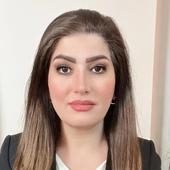

Shumi Akhtar
Associate Professor, University of Sydney
Reseach: Multinationals, Tax, Innovation and Technology, ESG, Sustainability, AI, Machine Learning, SMEs, Bond, Equity and Real-estate Markets, Public Policy, Higher Education, Indigenous Economics & Finance and M&A.
Teaching: Corporate Finance, Investment, Risk Management, Financial Statistics, Corporate Valuations and Mergers & Acquisitions (M&A).
Less ![]()

Shuo Gao
PhD Candidate, Interdisciplinary Centre for Conservation Science, University of Oxford
I am a post-growth economist broadly focused on themes of ecological compensation, no net loss/net gain, environmental and conservation psychology, social justice, and human well-being. I am particularly interested in (i) improving the effectiveness of incentive-based conservation instruments such as payment for ecosystem services and biodiversity offsetting, (ii) developing conservation strategies that can lead to the desired outcomes from both nature and people perspectives, and (iii) understanding the socio-psychological mechanisms behind human attitude and behaviour towards the environment.
Less ![]()
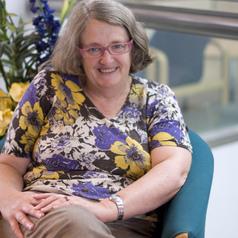
Shurlee Swain
Professor of Humanities, Australian Catholic University
Shurlee Swain is a social historian who has researched extensively in areas relating to treatment of women and children in the past.
Less ![]()
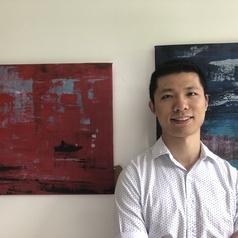
Shuye Yu
Research scientist, University of Oxford
Shuye Yu joined the Health Economic Research Centre at the Nuffield Department of Population Health, University of Oxford, as a researcher in 2023. Shuye is currently working on several projects aiming to conduct economic evaluations on different interventions for child anxiety.
Before starting at HERC, Shuye worked as a lecturer at the University of Groningen, where he also received his PhD degree in Economics. His PhD research focused on the health impacts of flexible working arrangements. Shuye obtained his MSc in Economics at UCL and MSc in Health Economics at the University of York.
Shuye’s research interests lie in applied microeconomics with a focus on health, labour, population and household topics.
Less ![]()

Sian Beynon-jones
Senior Lecturer in Sociology, University of York
Siân Beynon-Jones is a Senior Lecturer in Sociology. She discovered sociology via an undergraduate degree in Molecular Genetics, during which she became frustrated with conversations that positioned proteins as the sole agents of social change. After graduating in 2003, she undertook a taught MSc in Science and Technology studies at the University of Edinburgh, which allowed her to pursue her interest in the sociology of scientific and medical knowledge-making. Following this degree she was awarded an ESRC PhD studentship at Edinburgh (2005-2009). Her doctoral research explored how expertise is constructed by Scottish health professionals who are involved in abortion provision, and considered the implications of this for women who seek to end their pregnancies.
Career
Siân first joined the department in 2009 as a Research Fellow, working with Nik Brown on an EU FP7 project concerning the dynamics of policy-making about xenotransplantation. In 2011 she was awarded a three year Wellcome Trust Research Fellowship at York to develop her research around experiences with abortion provision, focussing in particular on the meaning(s) of ‘time’ and ‘timing’ in this context. Siân took up a permanent post in the department in 2014 as an Anniversary Research Lecturer and has continued to explore temporality, law and reproduction through a range of funded research projects.
Less ![]()
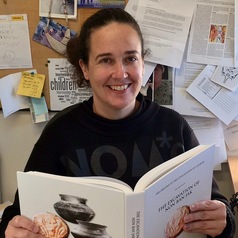
Siân Halcrow
Professor of Biological Anthropology, University of Otago
I am an internationally recognised pioneer in bioethics and the bioarchaeology of social justice, central to steering biological anthropology’s focus to social marginalisation, climate change, and developing the theoretical approaches to support this research. I am the first in NZ and among the first globally to tell the life stories of individuals from historical anatomical skeletal collections (Southorn*, Halcrow* et al. 2024), who were otherwise treated as teaching ‘specimens’. I inform ethical guidelines for studying human remains in bioarchaeology and anatomy. My work has transformed our understanding health impacts of climate and environmental change and the agricultural transition through studying the most vulnerable population, infants and children. My papers are key references in the bioarchaeology of childhood used in university curricula globally (e.g., Halcrow and Tayles 2008). I have led the field’s emphasis on the mother-infant nexus to understand human evolution, health, epigenetic change, and human development. E.g., Gowland and Halcrow (2000), The Mother-Infant Nexus in the Past is the most downloaded of the book series per annum.
Since 2007, I have >140 publications in high impact journals and books and >7 million in research funding, e.g., Wenner-Gren, National Geographic, Fulbright, Australian Research Council, FONDOCYT (Chile), Marsden. Selected honours include: University of Otago Rowhealth Trust Award and Carl Smith Research Medal (2018), NZ Association of Scientists Hill Tinsley Medal (2018), and NZ Scholar Fulbright Award (2023). I am co-Editor-in-Chief of Bioarchaeology International, on several editorial boards, and a keynote and invited speaker >40 times.
*Shared first author with student
Less ![]()
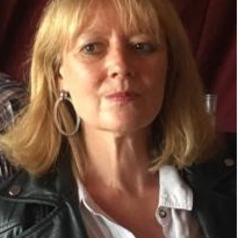
Sian Moore
Sian Moore is Professor in Employment Relations and Human Resource Management and Director of the Centre for Research on Work and Employment (CREW) at the University of Greenwich. She is co-Editor in Chief of Work in the Global Economy published by Bristol University Press and a Fellow of the Academy of Social Sciences. Her work focusses upon gender and class.
Less ![]()
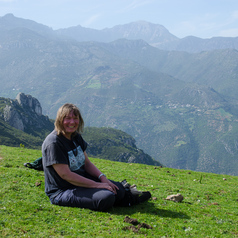
Sian Waters
Honorary Research Fellow, Durham University
I am a conservation social scientist with a focus on human-primate interactions.
I am also the Vice Chair of IUCN SSC Primate Specialist Group Section for Human-Primate Interactions & Director of Barbary Macaque Awareness & Conservation.
Less ![]()
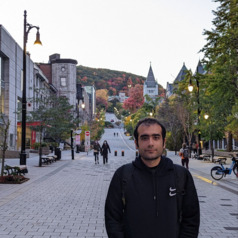
Siavash Farazmand
PhD student, Concordia Institute for Information Systems Engineering, Concordia University
I'm a PhD student specializing in recommendation systems and their pivotal role within on-demand transit systems, particularly in suburban regions.
Less ![]()
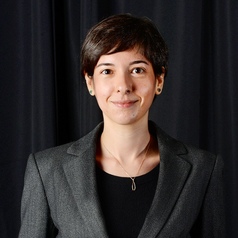
Sibel Oktay
Assistant Professor of Political Science and Global Studies, University of Illinois at Springfield
Sibel Oktay's research focuses on the foreign policy decision-making and behavior of coalition governments, primarily in Europe. Other research interests include political leadership and voting behavior within the context of democratic foreign policy, as well as Turkish-EU relations. Her work employs qualitative and quantitative methodologies, particularly comparative case studies, events data and content analysis. Oktay received her Ph.D. and M.A. in Political Science from the Maxwell School of Citizenship and Public Affairs at Syracuse University. She also holds an M.A. in Political Science and a B.A. in Social and Political Sciences from Sabanci University in Istanbul, Turkey. She was a visiting pre-doctoral fellow at Northwestern University’s Buffett Center for International and Comparative Studies between 2012 and 2014. Her work has appeared or is forthcoming in the Journal of European Public Policy and European Political Science. She is the 2013 winner of the Foreign Policy Analysis Section’s Alexander George Award and has been serving for the section as an officer-at-large since 2015.
Less ![]()
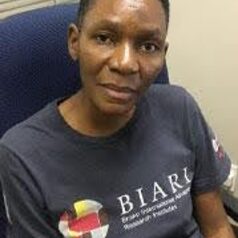
Sibonokuhle Ndlovu
Lecturer, University of Johannesburg
I hold a PhD in inclusive education, and my research focus is disability and gender. I am a lecturer at the University of Johannesburg, at Ali Mazrui Centre of higher education.
Less ![]()

Sibulelo Qhogwana
Senior lecturer, University of Johannesburg
Senior Lecturer in the Department of Psychology at the University of Johannesburg, particularly interested in social justice, minorities, and corrections.
Less ![]()
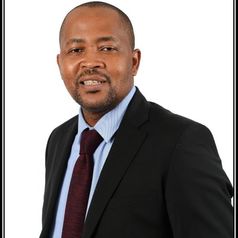
Sibusiso Zuma
Researcher, University of South Africa
Doctor of Literature and Philosophy in Health Studies. Senior Lecturer in Health Services Management previously worked in public health services as a Chief Director Clinical Support Services and Technical Advisor for Primary Health Care to South African Government. Research Area is Health System Strengthening and Quality of Care.
Less ![]()
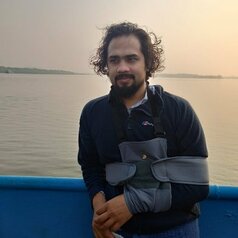
Siddhant Pusdekar
Graduate Researcher in Ecology, Evolution and Behavior, University of Minnesota
I have a Masters in Neuroscience from King's College London, 2 years of research experience at the Max Planck Florida Institute for Neuroscience, and have been pursuing a PhD in Ecology from the University of Minnesota since 2018. Here, I have worked with my advisor Paloma Gonzalez-Bellido on several projects centered on visually driven hunting behavior in invertebrates
Less ![]()
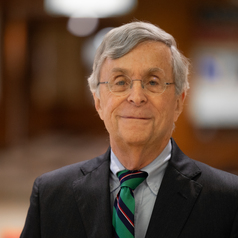
Sidney Shapiro
Frank U. Fletcher Chair in Law, Wake Forest University
I've written ten books, contributed chapters to sixteen additional books, authored or co-authored over fifty-five articles. I am also the Vice-President and founding member of the Center for Progressive Reform (CPR), a nonprofit research and advocacy organization,Before coming to Wake Forest, I taught at the University of Kansas where I was a distinguished professor. I have also been a distinguished visitor at Oxford University, University of Padua, the law schools at the University of Texas and the University of North Carolina, and the School for Policy and Environmental Affairs (SPEA), University of Indiana, Bloomington.
My latest book, coauthored by Joseph Tomain Dean Emeritus and Wilbert and Helen Ziegler Professor of Law in the University of Cincinnati College of Law, is How Government Built America, forthcoming from Cambridge University Press in June, 2024.
Less ![]()
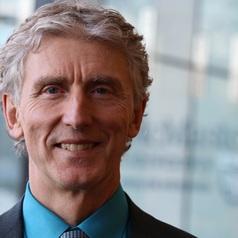
Sidney Robert Stacey
Assistant Professor, Department of Psychiatry & Behavioural Neurosciences, McMaster University & Chair Suicide Prevention Community Council of Hamilton, McMaster University
I have held senior management roles in academic health institutions, community hospitals, research institutes and universities in Ontario. I am a Fellow of the Canadian College of Health Care Leaders and a Fellow of the American College of Healthcare Executives. I received the Innovation Award from the University of Toronto, Institute for Health Policy Management and Evaluation for my work in launching the Ontario Cancer Research Ethics Board and the Order of Hamilton for advancing suicide prevention initiatives for our city. I was also awarded the Kim Harper Service Award by The Hamilton Academy of Medicine for city-wide suicide prevention work.
Less ![]()
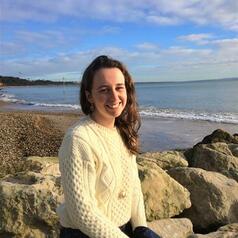
Sien van der Plank
Senior Research Fellow, University of Southampton
Sien van der Plank is currently a Senior Research Fellow within the School of Geography and Environmental Science at the University of Southampton. She has researched environmental management across conservation, political, mining and hazard contexts since 2014. She has been a member of staff in Geography and Environmental Science since 2020.
Less ![]()
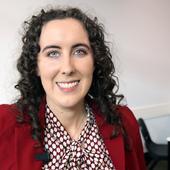
Sienna van Rossum
PhD Candidate, Queensland College of Art and Design, Griffith University
Less ![]()

Sifiso Ndlovu
Lecturer of Political Science, University of Mpumalanga
Sifiso Ndlovu is political science lecturer at the University of Mpumalanga. She previously held a post-doctoral research fellowship at the Johannesburg Institute for Advanced Studies (JIAS)-University of Johannesburg and Public Affairs Research Institute (PARI). Her PhD project at the University of the Witwatersrand broadly examined intersections and divergences in the articulations of belonging to ethnic identity and nation-building in post-apartheid South Africa in the culturally heterogeneous KwaMhlanga region. She also holds MA in political studies, an honours degree in political studies and a BA in political studies and sociology, all from the University of the Witwatersrand. Her research interests include ethnic identities, particularly Ndebele ethnicity, the state in Africa, African politics, public policy, democratisation, social justice and the politics of nation-building, belonging and citizenship. She has published journal articles and book chapters on Ndebele material culture, the politics of belonging and nation-building. She has received academic awards and scholarships, including the Next Generation Social Sciences in Africa doctoral fellowship, University of the Witwatersrand’s Council Postgraduate Merit Scholarship, National Research Foundation (NRF) bursary, and University of the Witwatersrand’s Postgraduate Merit Award Doctoral Scholarship.
Less ![]()
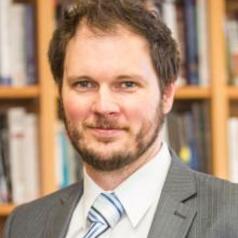
Sigi Goode
Professor of Information Systems, Australian National University
Sigi Goode is a Professor of Information Systems. Sigi’s research interests lie in information security behavior, services and technology adoption, policy and use. His research toolkit includes more than fifteen years’ experience designing and managing online information platforms. Sigi’s research has been funded by organisations including the Department of Defence, AustCyber and the Australian Communications Consumer Action Network. He has published papers in journals such as MIS Quarterly, Journal of Management Information Systems, European Journal of Information Systems, Decision Support Systems, Journal of Business Ethics, Information & Management, and European Journal of Operational Research. Sigi is also an Associate Editor of Information & Management, Behaviour & Information Technology, the Pacific Asia Journal of Information Systems, and the Australasian Journal of Information Systems.
Less ![]()
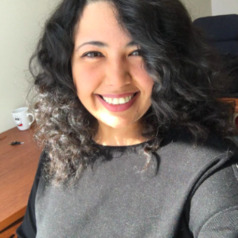
Siham Alaoui
PhD candidate in archival and communication studies, Sessional lecturer and research assistant, Université Laval
Siham Alaoui is a PhD candidate in archival science and public communication at Université Laval, Québec (Canada). She holds a bachelor's degree in Information Science (obtained in 2013 from the School of Information Science, Morocco) and a master's degree in Information Science (obtained in 2015 from the University of Montreal). She is interested in digital documentary mediation (information and data management), particularly in the current context of the universities’ digital transformation. She is an author of several scientific and professional articles published in specialized journals in information science (e.g. Archives, Canadian Journal of Information and Library Science, Documentation et Bibliothèques, Comma). She has also given papers and lectures at conferences and symposiums.
Less ![]()
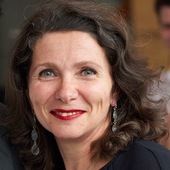
- Market Data





















